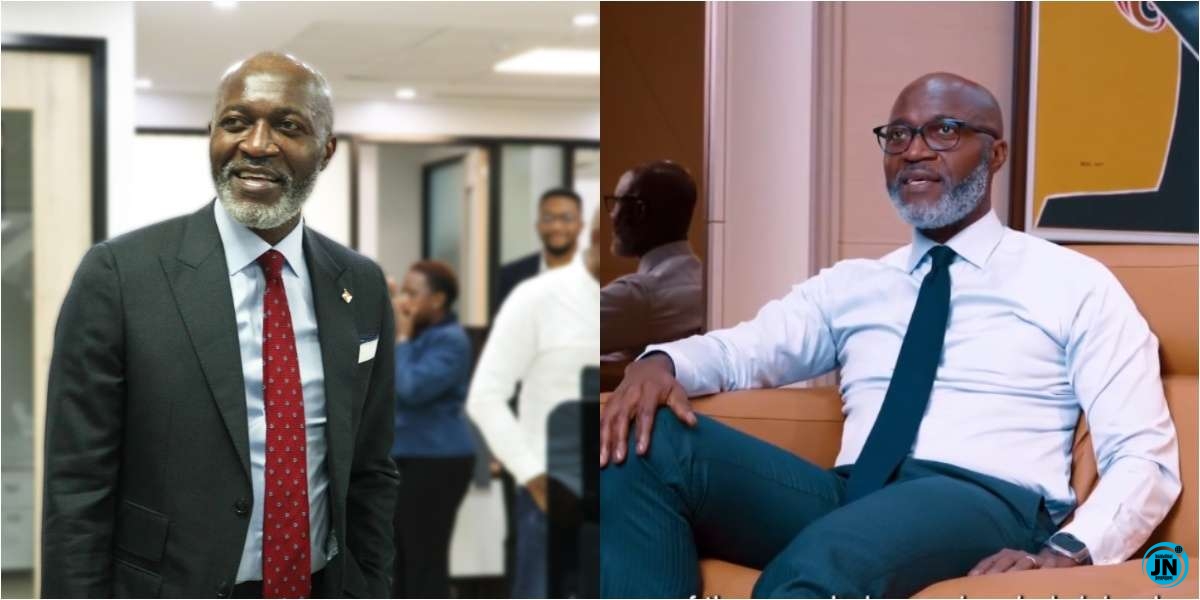
The Chief Executive Officer (CEO) of Access Bank Plc, Roosevelt Ogbonna, has come under intense scrutiny and public criticism after acquiring a luxurious £15 million mansion in London’s prestigious Hampstead area, an enclave often referred to as Billionaires’ Row due to its concentration of ultra-high-net-worth individuals and extravagant residences.
The property, which was reportedly purchased in August, features top-tier amenities including a private spa, entertainment suite, home cinema, expansive gardens, and other luxury facilities befitting its multi-million-pound valuation. The mansion was originally listed for £15 million as of 2021, reflecting both the exclusivity and the premium nature of the real estate in the area.
Civil Society Raises Concerns Over Transparency
Civil society organisations and anti-corruption advocates have expressed strong concerns about the acquisition, citing issues related to asset declaration, transparency, and the potential transfer of public funds. Transparency International Nigeria (TIN), through its executive head Auwal Musa Rafsanjani, highlighted the need for a thorough account of the sources of the funds used for such high-value purchases.
Rafsanjani stated: “The issue here is that he should declare his assets and taxes to the government and explain how he got the money. There is an ongoing effort to encourage the UK to extend their unexplained wealth laws. Even if someone is not a public officer, those handling or transferring funds that belong to public officials under false pretence should be scrutinized. Lawyers and bankers who facilitate these transactions can become gateways for hiding wealth acquired through questionable means. The Federal Inland Revenue Service (FIRS) must investigate why individuals in such positions fail to declare assets and remit taxes commensurate with the magnitude of their wealth. Without proper oversight, financial institutions inadvertently enable loopholes that corrupt actors exploit.”
He further emphasized: “He must provide a clear explanation of how he made the money because, as CEO, he does not control all of the bank’s resources single-handedly. The board oversees major operations, and the failure of banks to declare assets and comply fully with tax obligations creates vulnerabilities that can be exploited.”
Shareholders Offer Mixed Opinions
The mansion purchase has also elicited diverse reactions from shareholders and industry stakeholders. Boniface Okezie, national coordinator of the Progressive Shareholders Association of Nigeria (PSAN), noted: “If the purchase was made with legally earned funds, it is within his rights. However, this does highlight a broader concern about why affluent Nigerians prefer to invest large sums abroad, potentially diverting capital away from domestic economic growth. Efforts should be made to incentivize local investments that generate jobs and support Nigerian industries.”
Patrick Ajudua, national chairman of the New Dimension Shareholders Association, added: “Provided the transaction was conducted lawfully and transparently, it may not negatively affect shareholder interests. Nevertheless, appropriate regulatory agencies should conduct investigations to ensure full compliance with financial and tax regulations.”
In contrast, Isaac Botti, programme officer at Social Action Nigeria, defended Ogbonna, stating: “He is a private individual, not a public officer. Therefore, his personal investments are not automatically subject to public accountability. Unless there is evidence of fraud, mismanagement, or misuse of the bank’s funds, his financial decisions are his prerogative.”
Ogbonna’s Leadership and Bank Expansion Strategy
Roosevelt Ogbonna has been at the helm of Access Bank, Nigeria’s largest financial institution by assets, for over three years. He recently stepped down as a non-executive director of Access Holdings Plc, the parent company, in August, but continues to serve as the CEO. Under his leadership, the bank has pursued an ambitious strategy to expand its footprint internationally, aiming to double its assets outside Nigeria by 2027.
Currently, Access Bank operates in 24 countries across Africa, the Middle East, and Europe, catering to a customer base exceeding 63 million. The bank’s expansion and strategic growth initiatives have positioned it as one of the most influential financial institutions in the region, underscoring the significant responsibilities and scrutiny associated with its leadership decisions, including high-profile personal acquisitions by its executives.